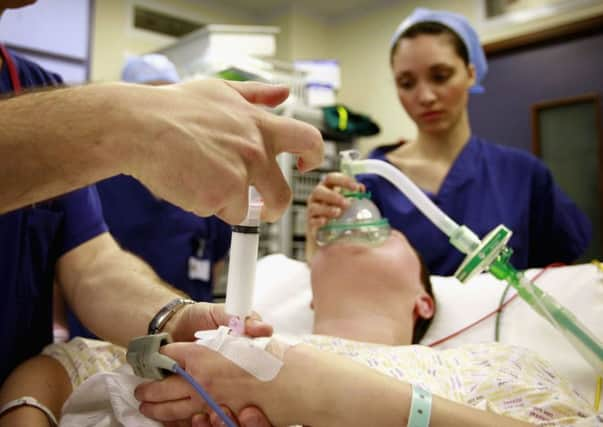Mark O’Donnell: NHS is on a journey of change


The integration of health and social care has been much written and spoken about. Scotland’s NHS and local authorities are well underway on a journey of – hopefully – transformation. All of the new integrated partnerships must be in place by April 2016. The word from Chest Heart & Stroke Scotland’s extensive networks and stakeholder groups tends to suggest that patients, service users and their carers are still not necessarily very well-aware of the impending changes nor what they might mean in practice for the services they will receive.
We recently co-led an event with the Royal College of Nursing Scotland for a number of major third sector health and care organisations in Scotland, to explore various strategic issues, and this sense of uncertainty was shared by a number of those present. There was also a question mark over the visibility of the third and independent sectors in some of the ‘Integrated Joint Boards’ (IJBs), which will oversee the new arrangements in practice. Nobody denies the crucial role that those sectors already do play, and will have to play to make the principles of health and social care integration work, but the way in which this will happen in practice remains unclear to many of us in the sector.
Advertisement
Hide AdAdvertisement
Hide AdHealth Boards and Local Authorities, must work with health and social care professionals, users, carers, the third sector and other key stakeholders to establish and operate the IJB, which, as a minimum has to oversee planning and delivery of adult social care services, adult community health services and a proportion of adult acute (hospital) services. It will be at the discretion of local partners to decide whether to integrate children’s services as well, now or in the future.
The Scottish Government has developed specific outcomes for what the local partners need to achieve through integration, and at the highest level this is about enabling people to look after and improve their own health and wellbeing and live for longer in good health. As key part of this, people with disabilities or long term conditions, or who are frail, need to be supported, wherever possible, to live independently and at home or in a homely setting in their community.
Organisations like Chest Heart & Stroke Scotland, and a wide range of other service providers need to play an essential part in not just in providing their expertise and capacity in services, but also in supporting service users themselves to be engaged properly in the strategic planning process, where they have a desire to be, but certainly at the more personal level of planning their own health and care services in a way that matches their needs and aspirations.
Our Voices Scotland programme, for example, has built a national network of people affected by chest, heart and stroke conditions to help them have their say. Through free workshops and ongoing support, people are provided with the knowledge, skills and confidence to work with health and social care services, which in turn will help IJBs to deliver new, better and more effective services. Our organisation, like the rest of our partners in the third sector, are fully committed to playing an essential role in making health and social care integration a success. It is a critical journey already well underway for the people of Scotland and for public services more generally and the public can count on Chest Heart & Stroke Scotland and the third sector on stepping up to the plate.
• Mark O’Donnell, chief executive, Chest Heart & Stroke Scotland